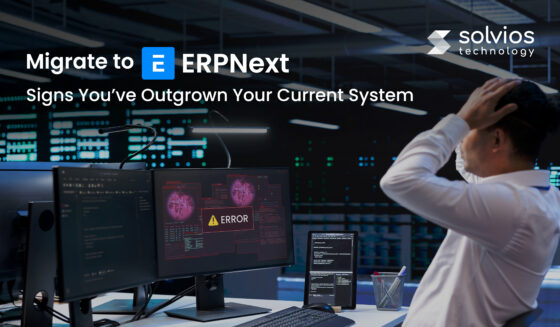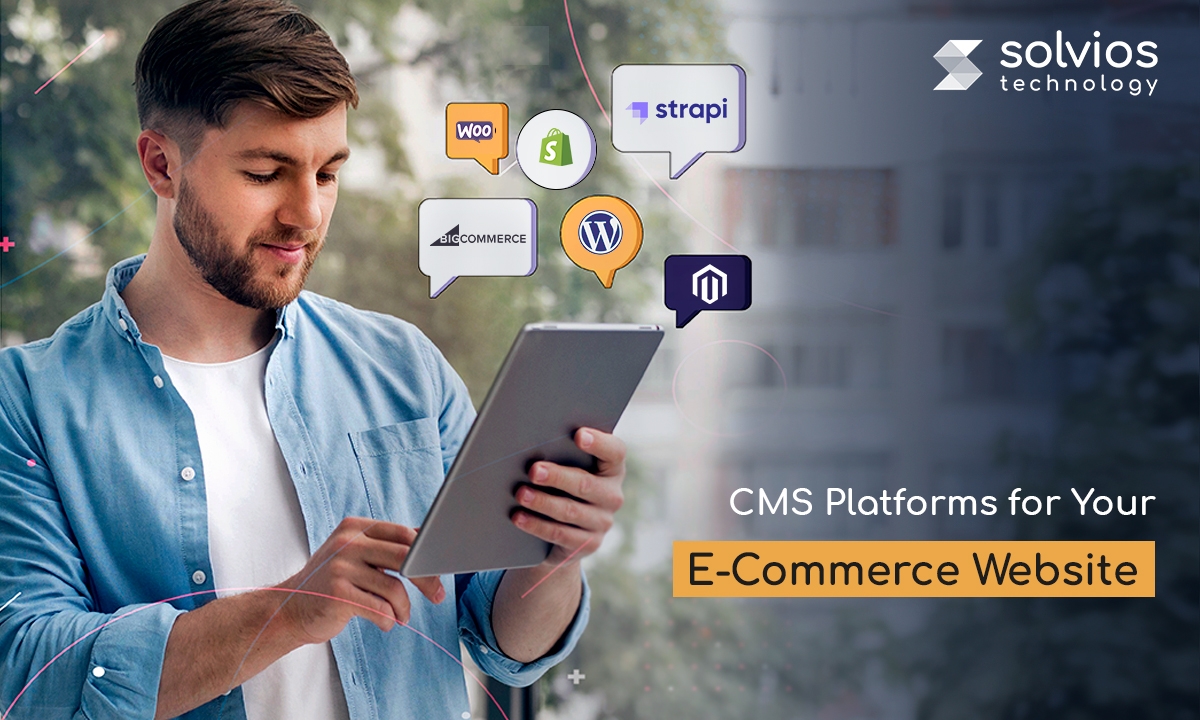
A best content management system (CMS) is a platform that assists organizations in managing, creating, and publishing digital content. In the digital age, it’s crucial to have user-friendly and systematic tools capable of bringing your message to the people.
The following question that arises in your mind is whether you should use a custom eCommerce CMS solution for your business website from the ground up. As everyone knows, they are no longer merely interactive brochures. They are marketing devices that allow companies to expand perpetually.
Yet, many choices and features can make it difficult for the business owner to choose the perfect CMS platform to meet their business’s demands. But first, let’s go through the fundamentals.
What is an eCommerce CMS Solution?

A content management system (CMS) is a platform that allows eCommerce website owners to generate, update, and publish website content without using any code. Users may also change the style and feel of the online market by altering the layout of product pages, adding promotional ads, or adding new website sections to promote the products.
An eCommerce platform is a web-based shopping cart that allows you to manage your items and sell them directly from your website. Some e-commerce platforms also work just like content management systems. You can say that it’s a user-friendly Ecommerce CMS solution that manages all the backend store administration operations of an online store.
When it comes to e-commerce CMS software, there are two main categories to consider, i.e., open-source and SaaS.
Why do you require a CMS For eCommerce?
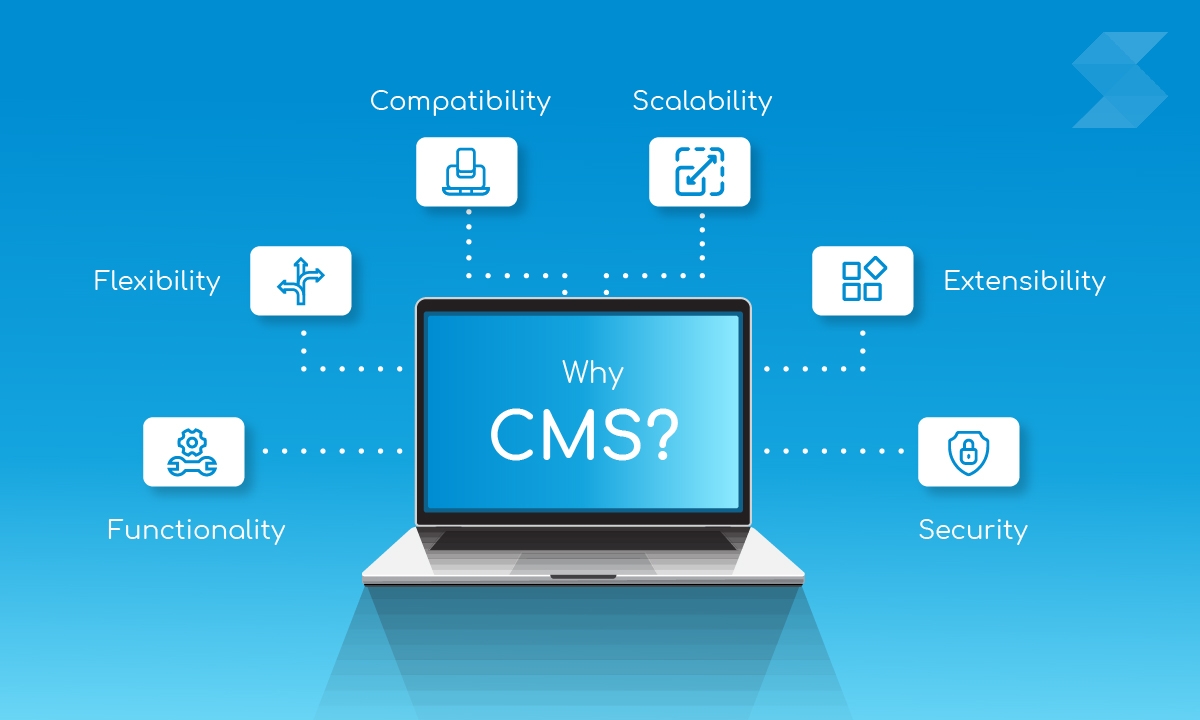
Although the comfort of use may appear to be the strongest argument for adopting a CMS platform, there are several additional benefits to consider CMS platform for ecommerce store. Here are a few convincing reasons why you should begin utilizing one right away:
Functionality
When choosing a CMS platform for eCommerce, the first thing to consider is functionality. Your content management system must provide the capabilities and features that are required to achieve your organization’s objectives. Ease of content administration, interactive interface, social connectivity, WYSIWYG editor, and marketing automation are some of the main elements that might improve the operation of a CMS. If you are planning to design an eCommerce site for your business, then consider a CMS that allows safe and rapid transactions between you and your buyers.
Flexibility
Flexibility is an important concern when selecting an eCommerce CMS platform. For example, when it comes to handling the website’s content, you should be capable of creating templates and custom pages. The layout of your web pages and themes should be as adjustable as possible so that you can squeeze them occasionally to rearrange your content accordingly. If your company wants additional plugins to improve your website’s functionality, choose a CMS that includes plugins.
Ensure Mobile Compatibility for Your Ecommerce Site!
Contact UsMobile Compatibility
Globally, more than 70% of search traffic occurs through mobile devices. Most eCommerce sites are searched on mobile phones, and users like to buy products through the online market. Most orders are placed through mobile phones, so your online store must be mobile-compatible. Otherwise, you’ll be missing out on a giant group of potential buyers.
As a result, search for an eCommerce content management system (CMS) that enables easy content editing and page administration. Also, you should ensure that it automatically delivers mobile-optimized content via a responsive design for a pleasant user experience.
Scalability
When selecting an CMS platform for ecommerce website, the platform’s size and scalability should conform to the size and scalability of your firm. If you want to expand your business by adding additional members, capabilities, and sales, your eCommerce CMS must be scalable enough to serve you through all of your uncertainties.
Extensibility
Scalability and extensibility go together. If you’re always scaling, you’ll need an eCommerce CMS that allows you to add, update, and even delete extensions. If you’re satisfied with a more static eCommerce CMS, you won’t need to put as much emphasis on extensibility.
Security
As we all know, more and more of our lives depend on the online market, so security has become essential for users. Your risk of a security breach increases every time, so during that moment, you are required to add a new registration or new user to your CMS. When choosing a CMS platform, it’s crucial to be aware of how seriously a CMS manages protection and access authorities.
The Best CMS eCommerce Platforms
Know MoreTop CMS Platform for your Ecommerce Store
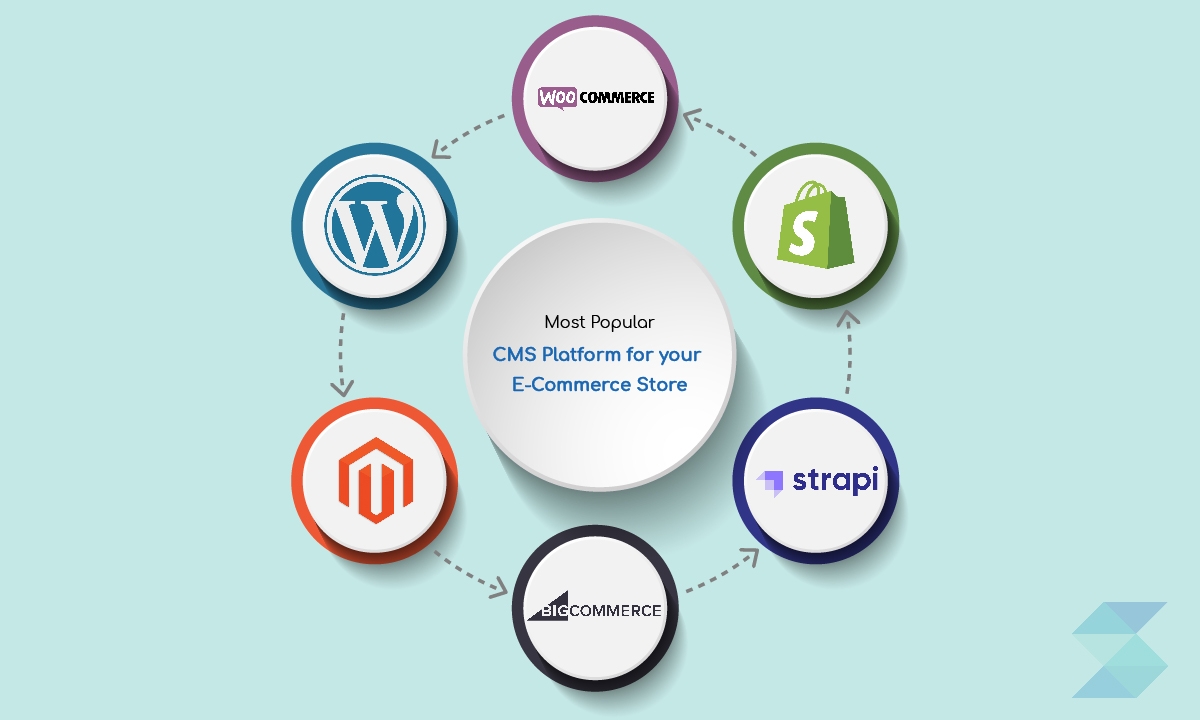
As you all know, each CMS platform provides benefits to your ecommerce store that help to achieve the website’s owner’s aim. Let’s move toward the platform to decide which is most suitable for your eCommerce website:
Magento
Magento is an open-source eCommerce platform that consists of a vast back-end interface and a comprehensive list of functions. You can enlarge and customize the website as per your requirements. Magento is available in two versions, i.e., Magento Commerce and Open-source. The open-source choice is best for users who already have experience in Magento web development, so it is not a good option for the website’s owner. Generally, Magento is frequently utilized on medium-to-large websites with the resources to hire a web developer or department.
Shopify
Shopify is the best eCommerce platform. It is a web application that helps you design an eCommerce website fast and easily with several templates. You can easily customize those templates to meet the needs of your online merchant or create your own store design. Furthermore, Shopify gives you the authority to manage the functionality and layout of your e-commerce website by providing a comprehensive CMS. Shopify is completely responsive and allows users to easily manage tracking, and change their online store from any device, i.e., mobile or desktop.
BigCommerce
BigCommerce is one of the best eCommerce platforms. Its robust product search engine makes it an excellent choice for large-scale retail businesses. It’s also a good option for folks who are planning to start an e-commerce website or who already have a physical store but want to extend their business through the online market.
WordPress
In today’s digital landscape, having a robust content management system (CMS) is crucial for your online success. Enter WordPress, a globally renowned platform that empowers businesses to create, manage, and optimize their digital presence seamlessly. Seamless User Experience: With its intuitive interface, WordPress makes content creation and updates a breeze, ensuring a smooth experience for both users and administrators. Customization Freedom, SEO-Friendly Foundation, Scalability, and Growth. Whether you’re a startup, a small business, or an enterprise, WordPress CMS provides the ultimate digital toolkit to elevate your online presence and connect with your audience like never before. Embrace the WordPress advantage and pave your path to digital excellence!
WooCommerce
WooCommerce is the most popular CMS platform that helps convert a WordPress blog into an eCommerce website. It is an easy-to-setup and user-friendly platform. Those who are familiar with WordPress will spend less time learning about WooCommerce functions. The best benefit of this platform is the great choice of extensions and themes. You can also integrate third-party extensions into your WooCommerce store to improve the website’s performance with just a single click.
Strapi
In the fast-paced world of digital content, having a robust and flexible content management system (CMS) is non-negotiable. Enter Strapi, a powerful and popular headless CMS that empowers businesses to create, manage, and distribute content seamlessly across various platforms. Headless Flexibility, Customization Empowerment, API-Centric Approach, Scalability Unleashed. From startups to enterprises, Strapi CMS offers a versatile toolkit to amplify your content management capabilities, enhance user experiences, and achieve your digital goals. Embrace Strapi’s potential and elevate your content strategy to new heights!
Wix
Wix is another popular name in the ever-exhaustive list of efficient content management systems. Widely known for its clean UI/UX and drag-and-drop functionality, the platform is a great start for business owners looking to manage their content in real time.
Wix is also known for its wide range of design templates, allowing users to build attractive online stores without deep design expertise. The platform’s built-in eCommerce features allow users to streamline inventory management, payments, and shipping with just a few clicks.
Squarespace
Squarespace stands out as an intuitive, user-friendly, all-in-one CRM for developing premier eCommerce websites. The platform is popular for its sleek templates and user-friendly design language, which simplifies business operations at every stage.
SquareSpace also offers integrated eCommerce capabilities to its users, enabling website building in a few steps. Additionally, the easy access to eComm tools, multiple templates, and simplified management allows users to stay updated with their content in a few clicks. Squarespace is an all-in-one solution for users to create stylish websites without core technical expertise.
OpenCart
Managing your eCommerce store is a complete operation on its own! However, thanks to platforms like OpenCart, today, a free and open-source eCommerce CMS offers a balance between functionality and simplicity. The platform has a vast store that offers plugins with multiple customization capabilities.
Moreover, the platform’s open-source nature makes it an affordable alternative for organizations seeking a self-hosted solution with control over their online store. However, users opting for OpenCart must gather more technical knowledge than other hosted alternatives. Once set, the platform ensures seamless operations at every step.
Drupal
When discussing Content Management Systems (CMS), you can’t miss out on Drupal, one of the leading platforms for building professional sites from scratch. The platform differs from other cookie-cutter CMS options as it’s more of a website foundation than a full-service site builder.
Users planning to leverage Drupal must spend some time understanding the platform’s ins and outs. Once done, the platform is easy to navigate and provides flexibility and scalability across several use cases. Thanks to its seamless functionalities, Drupal is a versatile and powerful content management framework (CMF) delivering high-traffic eCommerce websites.
Shift4Shop
Shift4Shop is another unique CMS platform that aims to streamline eComm operations at scale. The platform is an excellent fit for every business, giving owners everything they need to build, manage, and grow their operations. It doesn’t charge transaction fees, keeping it affordable for companies of all sizes.
Shift4Shop’s core feature enables it to offer a wide range of shipping and tax options. It also provides a tax feature for its users, where they can easily calculate and collect the sales tax from customers. This saves time and hassle, especially for owners who sell in multiple countries.
PrestaShop
When discussing Content Management Systems (CMS), you can’t miss out on PrestaShop, another open-source platform for eCommerce owners. This self-hosted CMS is designed to significantly enhance overall operations with flexibility and customization options. The platform is lightweight and versatile, giving users maximum control over the look and appeal of their website.
PrestaShop is ideal for businesses looking for a highly flexible and cost-effective eCommerce platform. It is an open-source system that provides vast customization possibilities and a devoted support community. However, this flexibility may need considerable technical knowledge, mainly when working with third-party modules of different qualities.
Volusion
Established in 1999, Volusion is a cloud-based e-commerce platform located in Texas. The platform is a go-to option for eComm owners as it allows them to access every aspect of their operations, from a site builder to business tools, giving you a professional website in no time.
Volusion is known for its adaptability, wide range of selling choices, and dropshipping and multi-channel sales support. The platform has an excellent list of third-party integrations that simplify business owners’ operations, allowing them to access features ranging from integrated newsletters and emails to service offers.
Joomla
Joomla is next on our list of CMS for eCommerce owners. It’s an open-source CMS written in PHP and an ideal option for developing eCommerce websites and web applications. The platform uses MySQL to store content while offering extensive customization to all its users, providing an accessible store to every business owner.
Joomla is best suited to eCommerce organizations with some technical skills or access to development resources. Its strength is its high level of customizability, thanks to widely available third-party components and extension options. However, this adaptability comes with a higher learning curve.
HubSpot
Juggling between multiple tasks while managing your eCommerce business can be a challenge. However, that’s where CMS platforms like HubSpot step into the picture. This platform combines content management with sales and marketing tools, making it a unique option for business owners planning to scale their operations.
The platform is designed with a user-first approach, allowing users to drag and drop their way to create a website. Additionally, its built-in SEO recommendations are great for beginners, allowing them to set up an SEO-optimized store without much technical knowledge. It’s an excellent tool for business owners who understand HubSpot tools and plan to improve their sales.
Maximize Your Website’s Performance with HubSpot eCommerce CMS Consulting Services
View MoreEmpowering eCommerce Growth Through Technical Expertise in CMS Solutions

The CMS you select requires you to enhance your existing technologies and software with something additional that can be used effectively. The following are some questions that you should ask yourself:
- Do users have the necessary technology and skills to maintain their own store?
- Is it possible for the website’s owner to handle the problem on their own if the content is incorrect?
- Do users have the essential resources to protect their eCommerce website against hackers?
The website is hosted on the vendor’s or owner’s servers, and you have complete control of the store’s administration. If you don’t want to handle technical issues, then the software as a service solution (SaaS) CMS solution is the best option. The vendor will manage the website’s maintenance, updates, and other technical issues. All you have to do now is concentrate on content creation.
What Challenges Do Users Face with Your Present CMS?

Let’s discuss the top three challenges that most users face:
- Sometimes users face difficulty in editing and publishing the content.
- Users get confused about custom extensions and the complexity of CMS integration.
- You will face inflexibility in workflows or customization and content data modeling issues.
Must-Have Features in an eCommerce CMS for Online Success
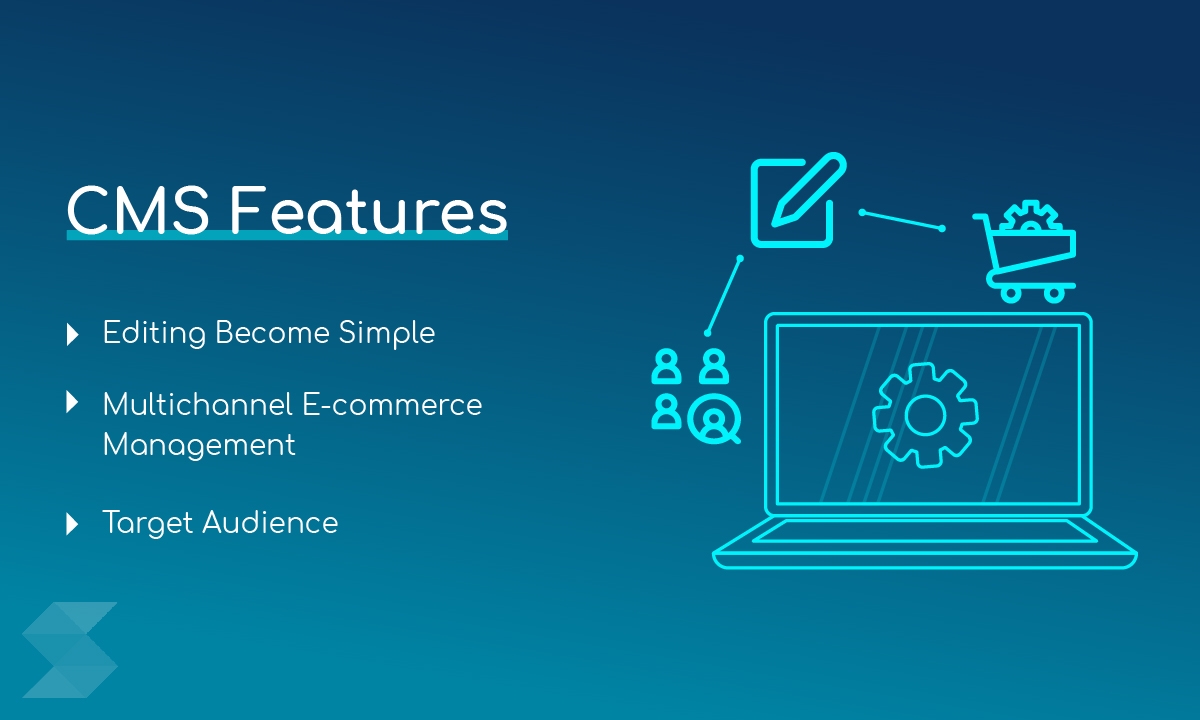
It’s one thing to want a new CMS; you should select the best one for your eCommerce store that is totally different from the previous one. When choosing an eCommerce CMS for your online store, keep the following considerations in mind:
Editing Become Simple
The main reason for getting a content management system ecommerce is to be able to administer your website without having to worry about coding. Make sure the CMS you select can access your website’s modifications easily. You should be capable of utilizing the plugins and uninstalling them as needed.
Multichannel E-commerce Management
A single-page website is no longer sufficient for a company. You can have apps, microsites, and many different channels for your industry, and the best content management system for ecommerce should allow you to manage all of them from one platform.
Target Audience
The website’s goal is to reach out to your target audience with relevant content. As a result, your eCommerce content management system should allow you to customize and change your website as per the taste and preferences of your target audience.
User Experience
The user experience of your CMS is a crucial aspect of your operations. The better the UI/UX, the easier it becomes to skip the learning curve and start using the platform. So, ensure that you sign up for a platform that’s easy to navigate and offers seamless operations.
Customization
What’s a CMS if it doesn’t offer customization options? Having a eCommerce content management system that allows several customization option helps you unlock personalization at scale. So finalize a CRM that gives you complete customization over different aspects of its operations, allowing you to stand out.
Performance
You don’t need a slow-performing CMS; your business requires one that’s ready to transform and scale as you grow. Having the best cms for ecommerce website ensures that it’s fast, optimized, and ready to grow as you expand your operations. Therefore, stress test your shortlisted platform and ensure you sign up for one that meets your requirements.
Customer Support
Is your CMS offering reliable customer support? Customer support is a crucial aspect of your eCommerce CRM since this factor determines how early can you resolve a solution. Before signing up for a platform, ensure that you get complete assistance for your operations 24/7, ready to resolve your queries at the earliest.
Hosting Capabilities
Don’t forget to check out the hosting capabilities of your chosen content management for ecommerce. The hosting capabilities of your platform will play a crucial role in determining the speed of your operations and determine its future capabilities. You won’t want a CRM that’s unable to scale with your business.
Support for Integrations
Look for the best CMS platform for ecommerce that offers multiple third-party integrations. Access to third-party applications streamlines different aspects of your operations, reducing the need of manual intervention. These integrations are designed to help you automate different aspects of your operations.
Start Boosting ROI From Your eCommerce Store Today!
Act Now!Enhance Your Website’s ROI by Switching to The Most Popular CMS for eCommerce

Making a profit is one of the primary goals of an eCommerce website. When looking at the most popular CMS for ecommerce platforms, consider how they will improve the ROI of your online store. How will their tools meet your requirements? Check out their customer testimonials and reviews, both on and off for online store. Here are some other questions to consider:
- Is there any simple way to check out?
- Does it have a strong online ordering system?
- Is it mobile-responsive?
- Does it offer plug-ins and marketing solutions to the user?
- Is it straightforward to set up?
Conclusion
Choosing the best content management system for eCommerce is a difficult task. Whether open-source or branded, it needs a great deal of thinking, planning, and future concerns.
Each eCommerce CMS should be assessed on its own merit, and it depends on your requirements, or check whether it comes within your budget or not. Is it capable of satisfying your needs? Will you have adequate help? Is it flexible enough to adapt to your company’s changing needs?
The easiest method to get certified value for your money is to find the best CMS for ecommerce website that closely corresponds with your needs.
Ready to Elevate Your eCommerce store?
Get Started Now!Tags
Related Blog
Want to get started with App Development?
These applications are acquiring enormous prevalence by offering hands-on enterprise mobility solutions for organizations around the globe.
Start A Conversation








